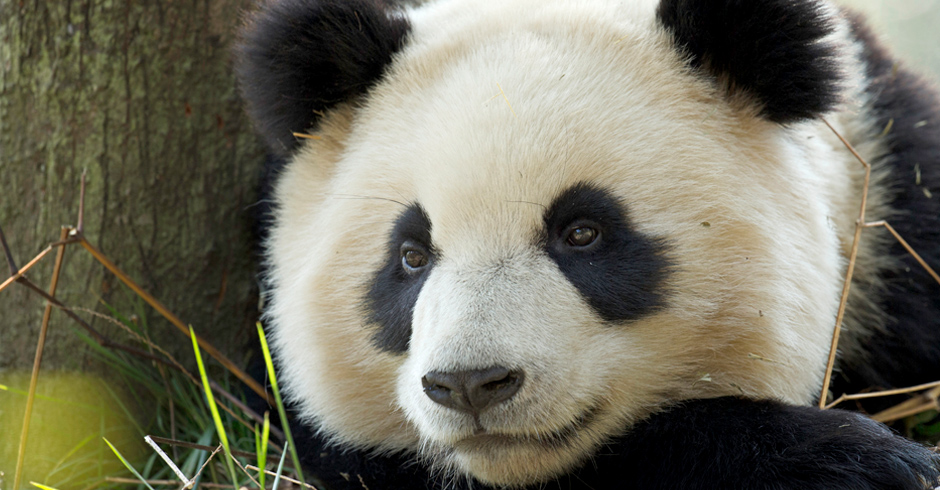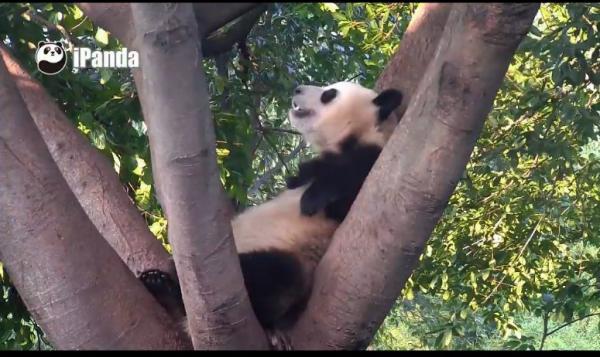'Stick to you like bamboo': Playful panda cub won't take a hint
An
employee at a conservation park in China just wants to get the daily
bamboo delivery out but a cute panda cub is determined to play.
Please, I'm trying to work! Panda just won't let zoo worker go as it clings lovingly to his legs while he cleans
Adorable video shows a panda desperately trying to cling on to a zoo worker
Cute creature holds tightly onto his leg as he ferries bamboo around enclosure
Every time he tries to rid himself of the animal it comes hurrying back for more
Being loved and wanted all the time is brilliant - just not when you're trying to get something done.
An
adorable video shows a panda desperately trying to cling on to a zoo
worker as he tries to clean at the Chengdu Research Base of Giant Panda
Breeding in Sichuan, China.
The cute creature holds tightly onto his
leg as he ferries bamboo around the enclosure and every time he tries to
rid himself of the animal it comes hurrying back for more.
The
employee picks up the black and white ball of fluff and plops it on a
wooden platform but it soon eagerly climbs back down and scurries to him
to throw itself at his leg again.
The man even has to walk around the pen with the panda attached to his foot.
Attempts
to place the animal higher up and further away fail too as the
determined mammal finds a way each time to navigate a route down and
back to the object of his affections.
The clip was uploaded to
YouTube channel, iPanda - a live panda-cam operated jointly by China
Network Television and Chengdu Research Base of Giant Panda Breeding.
iPanda.com was launched in 2013 to capture all the cute moments of the Chengdu pandas’ lives, from every angle.
It has turned many of the creatures into viral stars as the animals have been seen playing, fighting and mating.
It hopes to raise awareness of China’s national animal, an endangered species with less than 2,000 left in the wild.
Pandas live in mountain forests, and as typically solitary creatures are usually quite content to entertain themselves.










